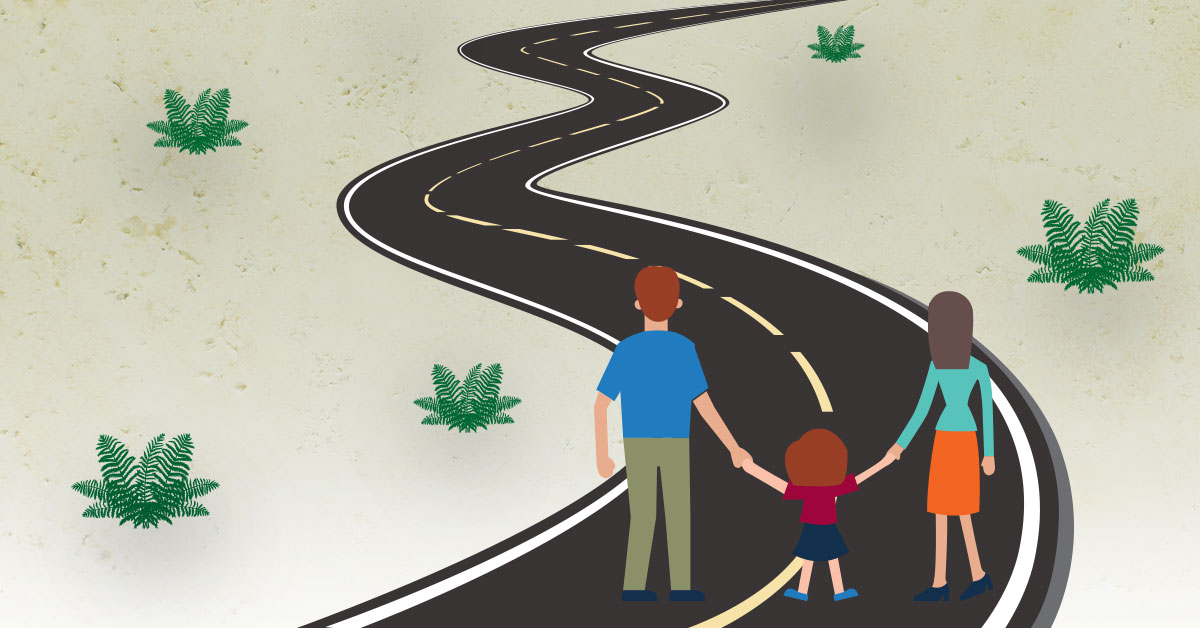
What are Healthy Relationships?
All healthy relationships have some basic fundamentals. The first one seems obvious, but it’s often over-looked or taken for granted; there should be communication in the relationship! You should feel like you can be honest and expect honesty in return. Conflict, disagreements, and even arguments and are a normal part of any relationship but your discourse can be calm and respectful versus escalating to the level of screaming or name-calling.
Healthy relationships are also supportive. Other’s respect your individuality the way you respect theirs. You adhere to each other’s boundaries; physical, sexual (in the case of intimate partners), emotional, and intellectual. You are encouraged to participate in activities and interests with other people. You count on each other to be there for you in good times and bad. It is the system we depend on and provides the base from which one goes out to interact with the world and the haven we come back to to rejuvenate.
Finally, healthy relationships should be fun! You truly enjoy spending time together. You have common interests, shared activities and appreciate being in each other’s company. You feel like you are both equally important and that you each put in equal amounts of work on the relationship. You know that there is someone who has your back.
What Is The Role Of Family In Addiction Recovery?
Substance abuse and addiction can damage family interactions, erode trust, and weaken communication. Family members who see a loved one battling with a substance use disorder (SUD) undergo a host of painful emotions. Equally frustrating is the hopelessness loved ones feel in response to substance abuse. Family members may feel at a loss when seeing a loved one caught in the grips of substance abuse. For example, stumbling upon burnt spoons and used syringes and finding empty or hidden full bottles of alcohol can create paralyzing feelings of fear and shock.
However, family members can help their loved one achieve and maintain sobriety. Despite seeing a loved one struggle, family members can and ideally do play a major role in the treatment process. The role of family in addiction recovery is large and important.
Dysfunctional Roles Family Members Play In An Active Addiction
A family impacted by substance abuse inevitably develops into a dysfunctional system. In this system, members unknowingly take on “roles” in order to cope. These roles have been named many things, and this is a version of what they are and how they play out.
The Savior Or Hero
The Savior or Hero is the shining star of the addicted family system. They look good, achieve well, and never let the family down. They compensate for the shame the family feels around the addict by being the family superstar. They may cover for the individual with an SUD, attempting to make the individual look pleasing to everyone. They may be in denial, overlooking major problems that require professional intervention. They are also compensating for feeling empty and helpless themselves due to the dysfunctional family dynamic.
The Mascot
The Mascot provides comic relief for the hyper-stressed family. Sometimes humor is tactlessly aimed at the individual suffering from the SUD. The Mascot uses humor to minimize the pain in situations and to deflect hurt. This often becomes a maladaptive coping skill.
The Lost Child
The Lost Child hides out, both physically and emotionally. They can be counted on to never “rock the boat.” They avoid conflict and suppress their emotions. They do not drain the limited emotional resources of the family, but suffer deeply internally.
The Scapegoat
The Scapegoat is the person in the family who is blamed. The Scapegoat creates other problems and concerns in order to deflect attention away from the real issue. They are very successful at distracting the family and others from the individual with an SUD.
The Enabler/Rescuer/Caregiver
The Enabler insulates the addicted individual by excusing their behaviors. The Enabler is unwilling or unable to hold the addicted individual accountable for their actions. They smooth things over and run interference to keep the addict from experiencing the logical consequences of their poor choices. This behavior often stems from their desire to avoid shame and embarrassment. They will often stunt the addict’s ability to recover if they don’t change their patterns.
Healthy Roles Of Family Members In Addiction Recovery
Family members can assume healthy roles and behaviors to encourage and support recovery. For example, a parent may play the role of the supportive but firm caregiver who encourages their loved one to take thoughtful and positive action. Healthy family roles and behaviors include holding the loved one accountable for their behavior and creating rewards for positive choices.
Family members may attend support groups with their loved one or attend their own support groups for families of addicts. The creation of healthy boundaries is a building block of recovery for the family.
Get Help Today
Our families are one of our most valuable support groups, even though the damage done by abusing harmful substances can be lasting. However, there is hope for both family members of individuals suffering from an SUD and for the individual abusing harmful chemicals. Select facilities may offer family therapy, incorporating innovative communication exercises, and relationship-strengthening activities led by licensed therapists.
Know that it is never too late to fix broken relationships with the help of licensed therapists and medical health professionals at Zorba Wellness destination therapy. As the one of the best rehab centres in Mumbai it treats both the addict and the family to be supportive and overcome the damage that SUD has done to them.
